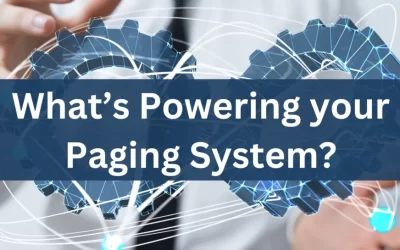Ethernet switches are the heart of your network.
Connecting them together with high-speed backbones is critical, and usually means connecting to the fiber optic cabling in your facility.
It’s common that switches have empty modular ports that accept small form-factor pluggable transceivers (SFPs) of your choice — allowing you to pick and choose the fiber type and speed that you want. It also allows you to upgrade these connections later when you need more speed to facilitate better communication throughout your system.
You realistically have two options for SFPs: original equipment manufacturer (OEM) or a third-party provider. Let’s look at both.
OEMs
Fact is you very likely feel obligated to go OEM for a few key reasons; compatibility, quality and warranty.
Compatibility
If an SFP breaks, malfunctions or needs to be replaced for one reason or another, going back to the same manufacturer ensures the replacement will plug and play without skipping a beat. It’ll work exactly like the previous one… by design.
Quality
If you’re building out your network with reputable, high-end materials you want to make sure the new elements you bring in can keep up. OEM products come from the same maker, which ensures peace of mind. Quality providers include Cisco, Palo Alto, HPE and the like.
Warranty
This is the biggie. There’s a fear that subbing in third-party SFPs will immediately negate the warranty and make future fixes even more burdensome.
You may even be wondering right now if using third-party transceivers will invalidate your warranty with your OEM vendor?
Absolutely not. This is a common misconception of third-party optics from any brand that we’re happy to dispel.
By law, OEMs must abide by the U.S. Sherman Anti-Trust Act, which prohibits them from invalidating your warranty, or withholding their support, should you use a third-party component with their hardware nor can they exclusively “tie in” upgrades only to their own brand.
In parallel, there are a number of corresponding multi-national laws that protect against OEM anti-competition behavior such as Articles 101 and 102 of the Treaty on the Functioning of the European Union (TFEU), the UK Competition Act of 1998, and the UK Enterprise Act of 2002, and India’s Competition Act.
This means that third-party transceivers are capable of supporting the full gamut of features offered, provided they are expertly coded to OEM specifications, while also still carrying your OEM warranty and support period.
Third Parties
On the other hand, there are plenty of aftermarket, third-party options to choose from to meet your needs.
However, as it turns out, the reasons we often avoid third-party providers are essentially the same as the reasons that we keep going back to original manufacturers… compatibility, quality and warranty.
Will this SFP be compatible? Is the build quality high enough that it’ll last? Will it void my warranty?
Valid questions with a lot of answers. Honestly, there are as many answers as there are third-party options.
Let’s look at them one by one, and then address the elephant in the room — price.
Will a third-party SFP be compatible with my network?
Depends on the provider, but compatibility information is something you can find relatively easily — especially if the third-party you’re considering is reputable.
Are they built to perform?
As with every industry, quality exists on a continuum and you get what you pay for in that sense. Some third-party SFPs absolutely have the quality you require.
Take Prolabs, for example. Each SFP is loaded with the appropriate Eprom before it leaves the factory to guarantee yours will work every time.
Will it void my warranty?
Again, the biggie. Again, it depends. The critical thing to note here is that using third-party SFPs does not inherently void a warranty. Many OEM vendors, like Brocade, explicitly state that they don’t restrict the use of third-party transceivers.
Which brings us to price, generally the deciding factor above all these other considerations.
Third-party SFPs come with big savings. Can you have it all though?
Say hello to ProLabs: a safe, compatible, high-quality — and affordable — third-party SFP provider.
It’s not too good to be true. You can indeed have it all.
You may even end up with a better quality SFP as ProLabs invests in emerging tech to help you futureproof your network with a stringently tested and interoperable product line.
They also certify that their transceivers, with a range from 100M to 400GB (covering optical and copper) are compatible with essentially every major company on the market.
In fact, they specifically state: “All ProLabs products are designed to comply with industry standard MSA (Multi-Source Agreements). Certain vendors require an element of serialization to make the product compatible; when ordering a compatible part to the desired OEM equipment, ProLabs can offer a truly “plug and play” solution, ensuring complete compatibility. ProLabs’ industry-leading lifetime warranty will not invalidate any vendor warranty on the host device.”
If you’re in the market for SFPs you seriously need to consider ProLabs.





